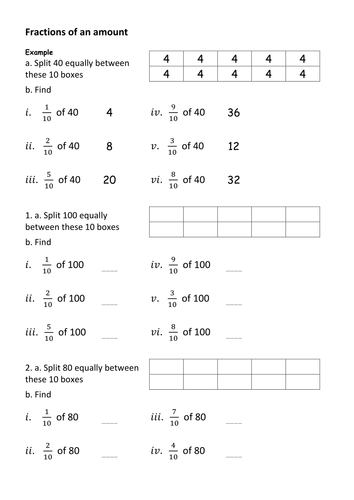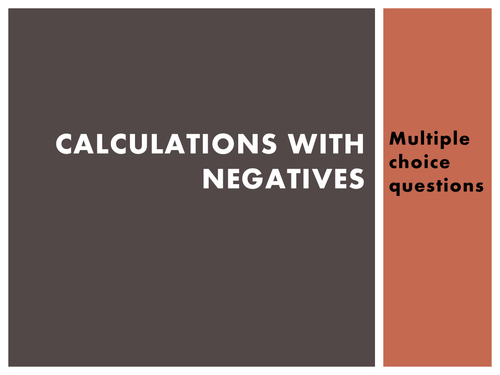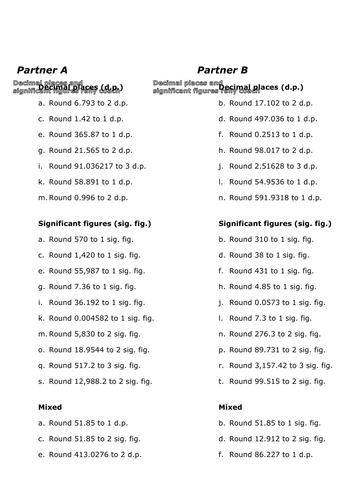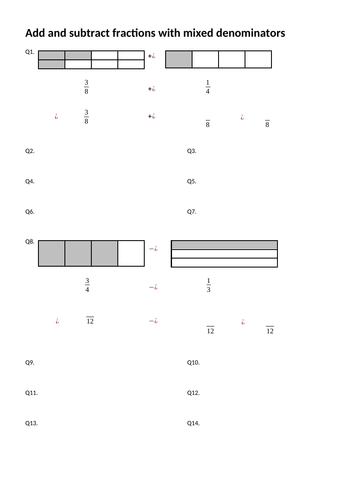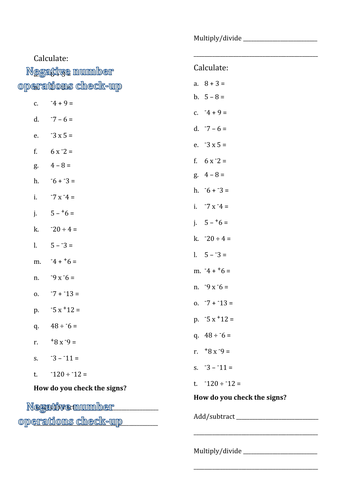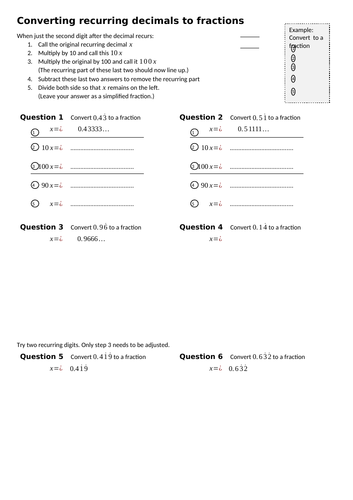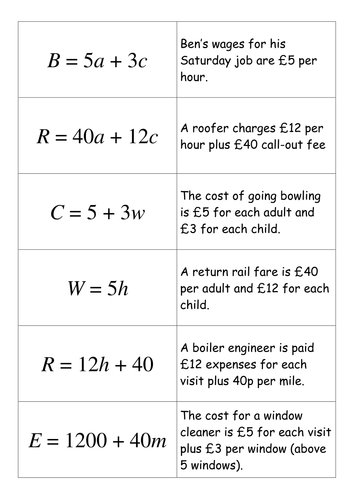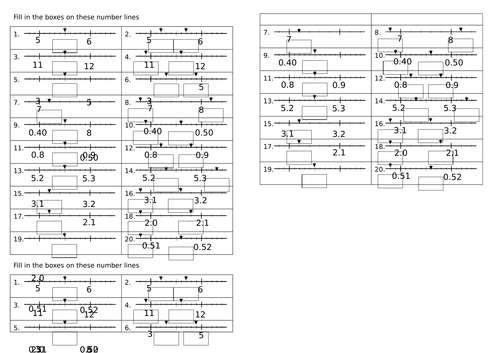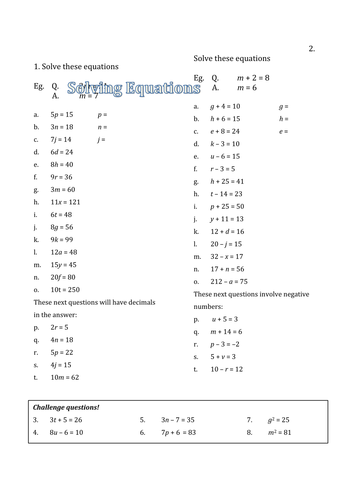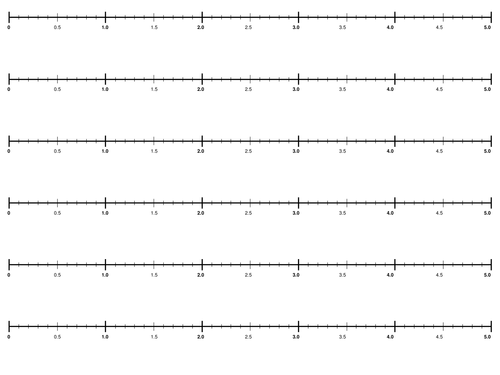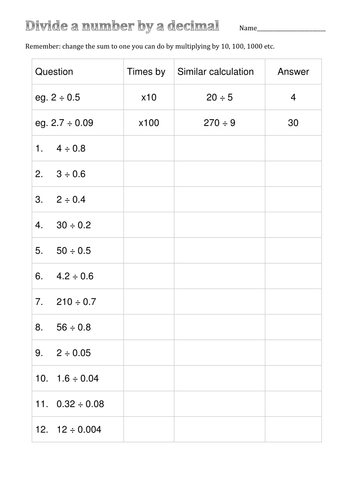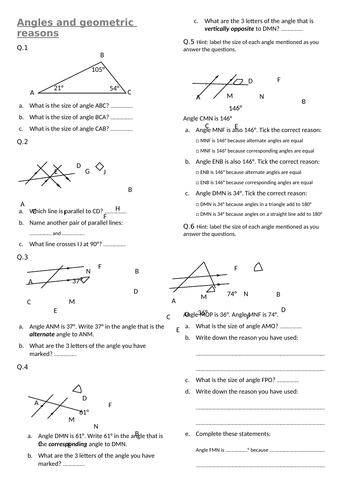
130Uploads
944k+Views
1089k+Downloads
Mathematics

Fractions - 4 rules millionaire
Powerpoint in Millionaire format. All 4 rules for fractions, starting from add/subtract then multiply/divide. Mixed numbers and simplifying involved at different points. [6/5/15 edited to remove duplicate false answer on Q1.]

Next term in sequence using flashcards
10 questions. Quick, multiple choice, summative quiz. Can use coloured flash cards or whiteboards to get responses. Mainly simple linear, but also geometric and squares to finish.

Fraction of an amount - simple
Scaffolded worksheet on fractions of an amount using fairly simple quantities.

Maths: Negative calculations using flashcards
10 questions. Quick, multiple choice, summative quiz. Can use coloured flash cards or whiteboards to get responses.

Rounding rally coach
Partners take turns to coach each other in rounding numbers to required decimal places or significant figures.

Add/sub fractions with mixed denominators
Short, scaffolded worksheet for adding and subtracting fractions. For lower ability group. (25/1/19 PDF version added.)

Deal or No Dealgebra
Quiz, loosely based on Deal or No Deal. #1 has brackets but easier numbers; #2 has (simple) algebraic fractions; #3 negative and decimal answers.
The player has an amount of money. The boxes contain algebraic expressions that say what that box is worth. So, if the player has £100, 2x+50 gives a box value of £250.
It could equally be played as a quiz between two teams or individual players trying to get the highest value box.
Original idea inspired by CrazyTalk clips on YouTube linked by Keith Ennis.

Negative number operations check-up
Add/subtract mixed with multiply/divide, seeking to clarify which signs you need to look at when deciding how to use signs in the answer.
Straight-forward worksheet (2 copies per sheet - chop in half!).
(12/7/16) Answers uploaded

Demonstration of surface area & volume of solids
Promethean flipcharts demonstrating surface area and volume of solids. Versions for ActivInspire (Flipchart) and ActivStudio 3.5 (Flp).

Percentage increase and decrease 'demo'
Promethean flipchart demonstrating percentage increase and decrease. Authored in ActivStudio 3.5 but should import into ActivInspire.

Recurring decimals to fractions - scaffolded
Scaffolded worksheet for converting decimal with second or second/third digit from decimal recurring.

Place value - use scales to find intermediate decimal values
20 quick questions. Use scale on left to get middle value (eg. between 5 and 6) or to establish the increments on the scale. 2nd question, fill in two more values on scale on right based on that answer. Repeat x 10. (Most increments are 10, but some are just five 'per unit'. One, two and 3 decimal places.)

Solve various equations
Mainly various equations - various levels of difficulty, both 1 and 2-step
(12/7/16) Further equations and answers uploaded

Divide by a simple decimal
A presentation showing how to divide by (say) 0.2 or 0.5. Introduces idea at the end of rewriting the sum by increasing both dividend and divisor by power of ten.
Supporting file has decimal number lines (0-5, 3 different sets of scale markings) for printing on A3 for students to use - you may want to cut up and laminate.
[15/7/15 improved from user feedback]

Dividing by a simple decimal
Structured worksheet for dividing by a simple decimal. Uses principle of finding a similar calculation that gives the same answer - so instead of 36 / 0.09, find 3600 / 9.
(12/7/16) Answers uploaded

Angles and geometric reasons - intro
Fill-in worksheet introducing correct way to name angles/lines and identifying alternate/corresponding angles. Goes on to get students to identify and then write correct geometric reasons.
Answer sheet to match (although student sheet slightly reconfigured since to give correct names for angles).
Meant as a reasonably easy introductory resource once key ideas have been explained from the board. Hopefully accessible to my Y7s (Yup!)
Second worksheet (with answers) emphasises reasons for each angle

Factorising from pictures - Sit 'em down
Presentation that introduces factorising by trying to split arguing kids into equal groups with equal numbers of adults. Goes on to algebraical representation without pictures.
Worksheet and answers now together here

Expand brackets with party bags!
Brackets are compared to party bags! So expanding is just finding out how many items altogether.
Hopefully simple, visual explanation of concept followed by some quick questions. Used alongside mini-whiteboards.

Factorising, functions and graphs
This links factorisation of linear expressions (where the term in the bracket is in the form y=m(x + c/m)) to the intercept with the x-axis. It lays the foundation for the same concept when factorising quadratics. It could be developed by examining y = c - mx or y=m(ax + c/m).



